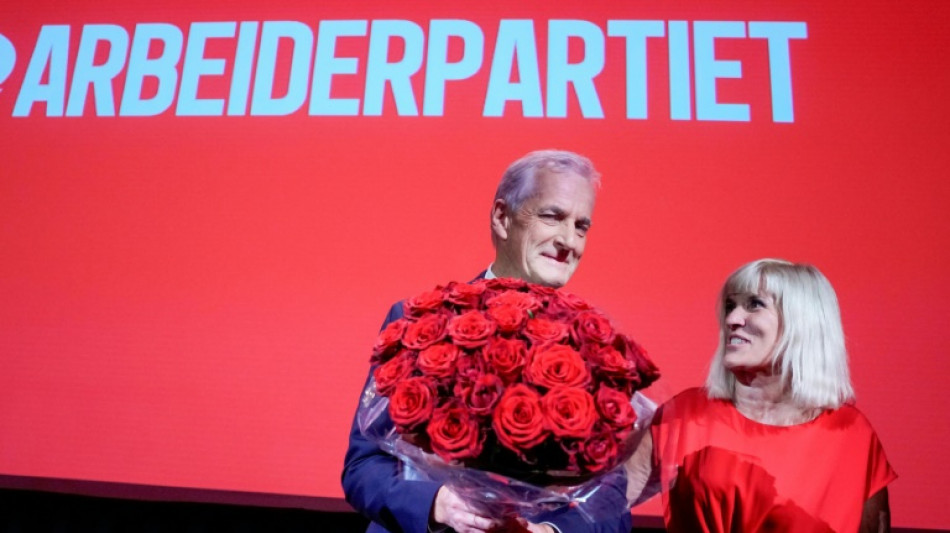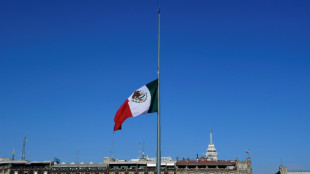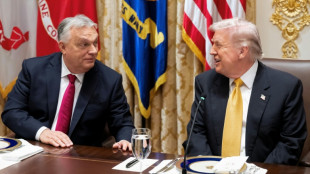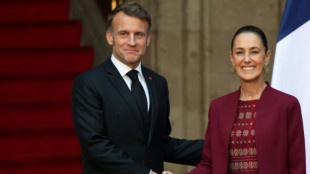

Norway PM's left bloc wins election, populists surge
Norway's left-wing bloc led by Prime Minister Jonas Gahr Store won Monday's legislative elections, which also saw a record surge in support for the anti-immigration Progress Party.
In power since 2021, Store is expected to continue to head a minority Labour government, backed up by the other four left-wing parties.
The election campaign in the wealthy nation of 5.6 million people had centred largely on domestic issues but was also influenced by geopolitics, including US President Donald Trump's policies and the war in Ukraine.
Norway's five-party left-wing bloc won a narrow majority of 87 of the 169 seats in parliament, compared to 82 for the right-wing bloc, results showed with almost all ballots counted.
"We knew it would be close, and it was. We knew we'd have to give it our all, and we gave it our all... We did it," the 65-year-old leader exclaimed at an election night rally after his Labour Party came out on top with around 28 percent of votes.
The election also saw a record surge in support for the anti-immigration, anti-establishment Progress Party, which doubled its score from the 2021 election.
Boosted by younger voters, in particular men, it became the leading opposition force with some 24 percent of votes, overtaking former prime minister Erna Solberg's Conservative Party which registered its worst election score in 20 years at 14.6 percent.
"Tonight, we are going to celebrate the best score in our history, and my goal is for this to be just the beginning," Progress Party leader Sylvi Listhaug said.
While she congratulated Store on his win, she predicted that the next four years would be "difficult for the people and the business world".
- Fleeing wealth tax -
The election campaign centred largely on issues like purchasing power, healthcare, inequality, public services and taxes.
Several dozen wealthy Norwegians have fled to Switzerland in recent years to avoid wealth tax, and the two blocs had butted heads over whether to maintain or abolish the tax.
"What really has been a concern for people is their daily situation in their personal economy, how to cope with increasing prices," Store told reporters after casting his ballot with his wife at an Oslo school earlier in the day.
Listhaug told broadcaster TV2: "Do we want to continue as before, spending more and maintaining very high taxes without getting more for our money than neighbouring countries, or do we want to take back control and stop the waste?"
- Trump effect -
Store had appeared out for the count just a few months ago, to the point where questions had been raised about his succession.
But with his long experience in politics as both prime minister and previously as foreign minister, he benefitted from voters' perceived need for stability following global tumult over Trump's policies, including over tariffs, as well as the war in Ukraine, political scientist Johannes Bergh told AFP.
Store was also boosted domestically earlier this year by the return to government of popular ex-NATO chief Jens Stoltenberg as finance minister.
Store's Labour Party will need the informal support in parliament of the Centre Party, the Greens, the Socialist Left and the communist Red Party.
But it will be tricky to get all their ducks in a row.
Labour is in favour of continuing the oil drilling that has made the country so prosperous, but it could be forced to compromise by some of its allies who want to phase out oil activities.
The head of the Socialist Left, Kirsti Bergsto, has already warned that her party's influence meant that "we will not open the deep seas up to mining", and there would be "new reductions in emissions" of greenhouse gases.
Labour and the Greens are meanwhile in favour of maintaining close ties with the EU, while the other parties on the left are staunch eurosceptics.
The far left wants the country's sovereign wealth fund, the biggest in the world, to divest from Israel, a move which Labour opposes.
H.Klein--MP




